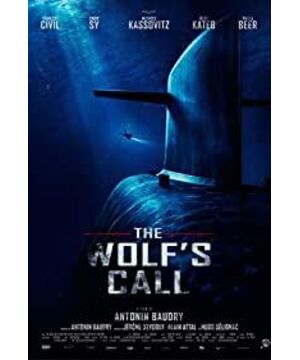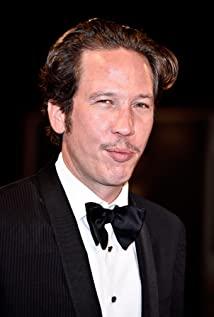Wolf's call refers to the sound of the submarine when it is detected by the active sonar. The opening was a suffocating round of offense and defense: Iran was forcibly stuffed with a black-tech stealth frigate. The ship was equipped with Wuzhi and used it to anti-submarine. As a result, the submarine chose to float up and use RPG. . . But apart from the beginning, the submarine warfare presented in the whole film is very realistic: the modeling of underwater submarines, the command room setting that is professional and even walking on the edge of leaks, the tactical game of submarine warfare, and the military language of the crew. It can be seen that the actor has spent time on boat training, and the details of the props are also very good (the oxygen mask needs to be used at any time). It is worthy of the main theme film with the deep participation of the French Navy.
But it is such a main theme film, the French nuclear strategy it presents is frivolous and aggressive-and this makes the biggest contradiction of the whole film, brotherhood, extremely absurd. The first is the first-strike of "Russia". The background set in the film is Russia's westward expansion, "the two divisions have entered southern Finland", but the United States has no intention of large-scale intervention. So France provoked the European defense leader and sent an army to Finland. After the ambassador to Russia received a nuclear threat, the strategic forces entered a state of combat readiness. The detonation of the crisis was a SSBN smuggled out of the Russian Navy and launched an intercontinental missile with a nuclear warhead removed at the Bering Sea. This was judged by the protagonist Golden Ear and the French Navy as a nuclear strike by Russia against France-this judgment It may make sense in tactics (the protagonist can hear the underwater acoustic characteristics of the submarine), but it is illogical in strategy at all: Why launch from the Bering Sea? Next door to the Bering Sea is the Alaska Early Warning Radar, and thousands of miles away will provide a fairly long warning-interception window. Why not launch from European territory? Why did it directly launch a large-yield nuclear bomb instead of adopting a gradual escalation strategy that is more beneficial to Russia? Why not use bombers that can be easily destroyed for the first strike, and use the concealed and highly survivable SSBN for the first strike?
Then came France's nuclear retaliation. The operation shown in the film is a very typical "Launch-on-warning" (Launch-on-warning), that is, as long as it receives information about the enemy's missile launch, it will conduct a nuclear counterattack without waiting for the warhead to land. Generally speaking, there are no more than two reasons for implementing LOW: the first is that the nuclear force of the other side is expected to be severely lost in the attack of the other side (launch it or lose it), and the second is that the target targeted by the side is fleeting ( For example, the target is the opponent’s launch vehicle, and the launch vehicle is about to be transferred to an underground bunker). If we think that France’s nuclear strategy still follows minimum deterrence, the speed at which counterattacks are ordered in the film is puzzling. The French strategic force is centered on the sea. The air-based force has only tactical warheads. A single nuclear bomb will not impair its ability to retaliate. Unless Paris assesses that its command and communication system is extremely fragile, a single nuclear bomb is sufficient to destroy it (if it is true) Why only fire one missile to fight back? Shouldn’t all missiles be fired when the command system is expected to be paralyzed?). And the goal of French nuclear weapons does not exist that cannot be hit without a fight, and Moscow and St. Petersburg will not be transferred out of thin air.
Finally, the positioning of the hotline is worth mentioning. In the "Paris-Moscow" hotline, Russia denied launching a nuclear bomb, but France didn't believe it at all-then what's the use of the hotline? Just to listen at the critical moment?
In short, at the strategic level, the film "Wolf Howl" shows that for a suspected nuclear strike that is extremely unconventional, the French Supreme Command hastily reached a nuclear counterattack without fully communicating with the enemy and allies. The order eventually led to the sinking of one SSN and the return of one SSBN to the factory for overhaul, which greatly reduced its strategic strength. Perhaps the only reasonable answer that can be thought of to such a story is that this film attempts to signal to Russia that "any blow to France will be met with a large-scale counterattack", which is the French version of Eisenhower's "massive retaliation". But is France's nuclear arsenal really capable?
View more about Le chant du loup reviews











